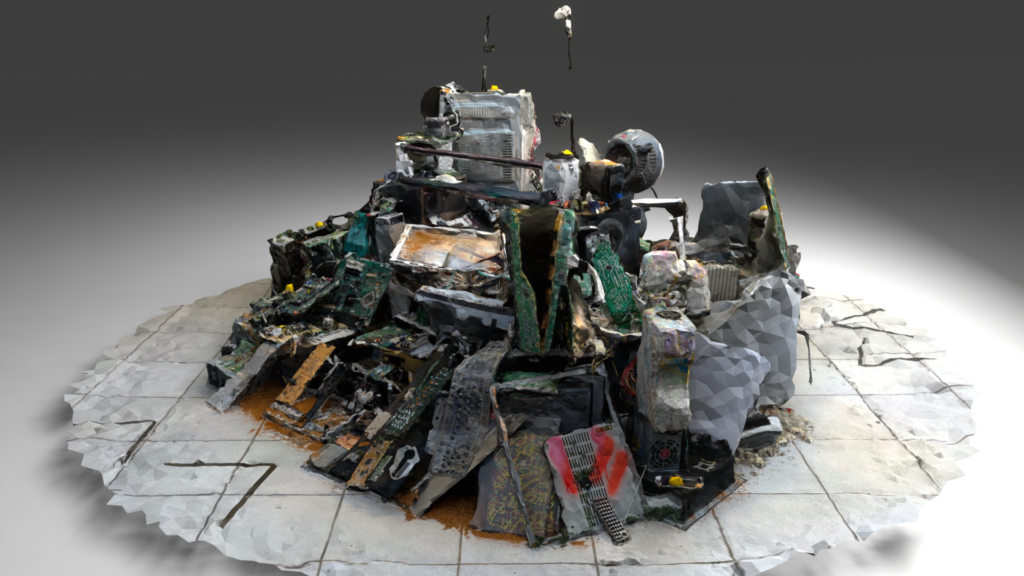
To what extent can artistic media practice with XR technology and e-waste expand narrative worldbuilding toward new critical imaginaries of reality?
The project Villa Futuro emphasizes a figural and theoretical approach to the speculative storytelling of a marginal city of the future called Villa Futuro from which ontological, aesthetical, political, and technological issues are tackled. Such an approach aims to critically unfold a media art practice that engages with modeling discarded materials spaces conveyed as assemblages of disruption. The proposed artistic practice contrasts these materials and narratives with the use of new media (such as photometry, augmented reality, and 3D-web-based environments) as an artistic research framework that intends to open a space of possibility for critical thought, multiperspectivism, and creative forms of speculative storytelling in audiovisual media.
The process begins with retrieving, dismantling, and reassembling various discarded electronic devices collected from the city. With the parts, I assemble a bricolage of a city, speculating on the figures that inhabit these devices and how they might relate to each other. From here, I extend the assembled electronic scrap as a figural setting by producing multi-perspective and non-linear stories about the city inhabited by these figures. This setting is then audiovisually augmented through 3D scans, graphics, videos, and sounds connected to the physical fragments of electronic scrap that configure the city of Villa Futuro.
What is this city about? It is about an ordinary city, a collective technology of embodied and territorialized communication contingent on individuals, communities, societies, imminent collapses, immanent changes, exclusions, marginalization, new beginnings, and becoming with others. But this city is also not ordinary because it is set on the corpses of media electronic devices transformed into another device: a material and narrative assemblage. This assemblage informs us about a marginal position in the imagination of the future that becomes unfolded not as the projection of current urban realities but rather as a blind spot of silent noises meandering materials and discourses around the city. Such silent noises do not come from a hegemonical position: they do not designate a clear message or follow a straightforward narrative arrow, nor do they convey a utopian or dystopian image of the city. Instead, they condition the existence of the city and sustain it critically operating ubiquitously, multi-dimensionally, multi-sensorally, and in non-linear temporalities. In a nutshell: They condition the city as a multiplicity of figures inhabiting matter and opening spaces of possibility.
———————————————————————————————————-
Villa Futuro is a media art research and PhD project on urban marginality, art, media, and speculative storytelling at the Film University Babelsberg.

